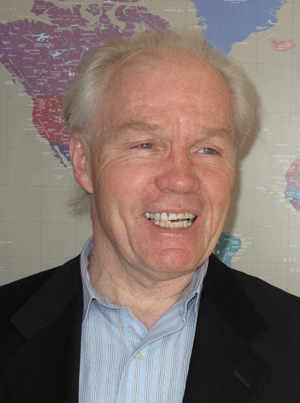
 A former chair of the Immigration and Refugee Board of Canada says there’s no way that Ottawa can fulfil its promise of resettling 25,000 Syrian refugees by the end of the year.
A former chair of the Immigration and Refugee Board of Canada says there’s no way that Ottawa can fulfil its promise of resettling 25,000 Syrian refugees by the end of the year.
“We need to move away from focus on the deadline and ensure that we do it properly,” says Peter Showler, a lawyer who was chairman of the board from 1999 to 2002. “If we did this in six months, it would be an amazing success. It would be a shining historical moment for Canada, but other than temporary housing on military bases, it’s not possible.”
The comments come as the new Liberal government works on a plan to fulfil its promise to resettle 25,000 Syrian refugees this year. Even rushing to shelter refugees on military bases would require a loosening of the protracted, albeit thorough, refugee-screening process, says Showler. While that may not be the best course of action, Showler suggests it would allow for a smoother selection process.
“If you’re going to be doing a triage for low security-risk groups, that’s quite easy to do. We’re choosing 25,000 out of 4.5 million. My God, if you gave me gave me a team of people, I could go over there and in a week identify 25,000 and I would be very confident we would have no security concerns whatsoever.”
Instead of case-by-case screening, for instance, Ottawa can be reasonably assured by selecting from pools of refugees. Relatives of Syrians who are already living in Canada must be a first priority, says Showler, but he also points to single mothers who haven’t been involved in the physical battle.
Syrians who fled the country within the first two years of the uprising are another relatively safe group. “The first wave of refugees that fled in the first two years, many of them were urban, middle-class, educated professionals who were opposing the [Bashar] Assad government because of secular and democratic values. They were some of the first to flee, and we know when they fled because they registered with [the United Nations refugee agency].”
While concerns have been raised about jihadists entering the country under the guise of being refugees, Showler calls that notion “complete fear-mongering” and insists that Islamic extremists weren’t among the first wave of refugees coming out of Syria. “Historically, we’ve always seen that pattern where people are raising security concerns and they have almost exclusively been unfounded.”
In Showler’s view, Ottawa will also have to do away with its practice of granting permanent resident status after a thorough assessment if it wants to accelerate the settlement process. Instead, he suggests the government should be granting refugees temporary resident permits.
Ultimately, though, Showler believes the government should be backing away from its unrealistic promise and looking to resettle Syrian refugees in a way that’s “fast but fair.”
“I can categorically tell you: If settling means being placed successfully in Canadian communities, then absolutely that cannot happen by the end of the year. And I just wish they would stop talking about it. I think it was a well-intentioned but rash promise made during an election, but they don’t have to be tied to it.”